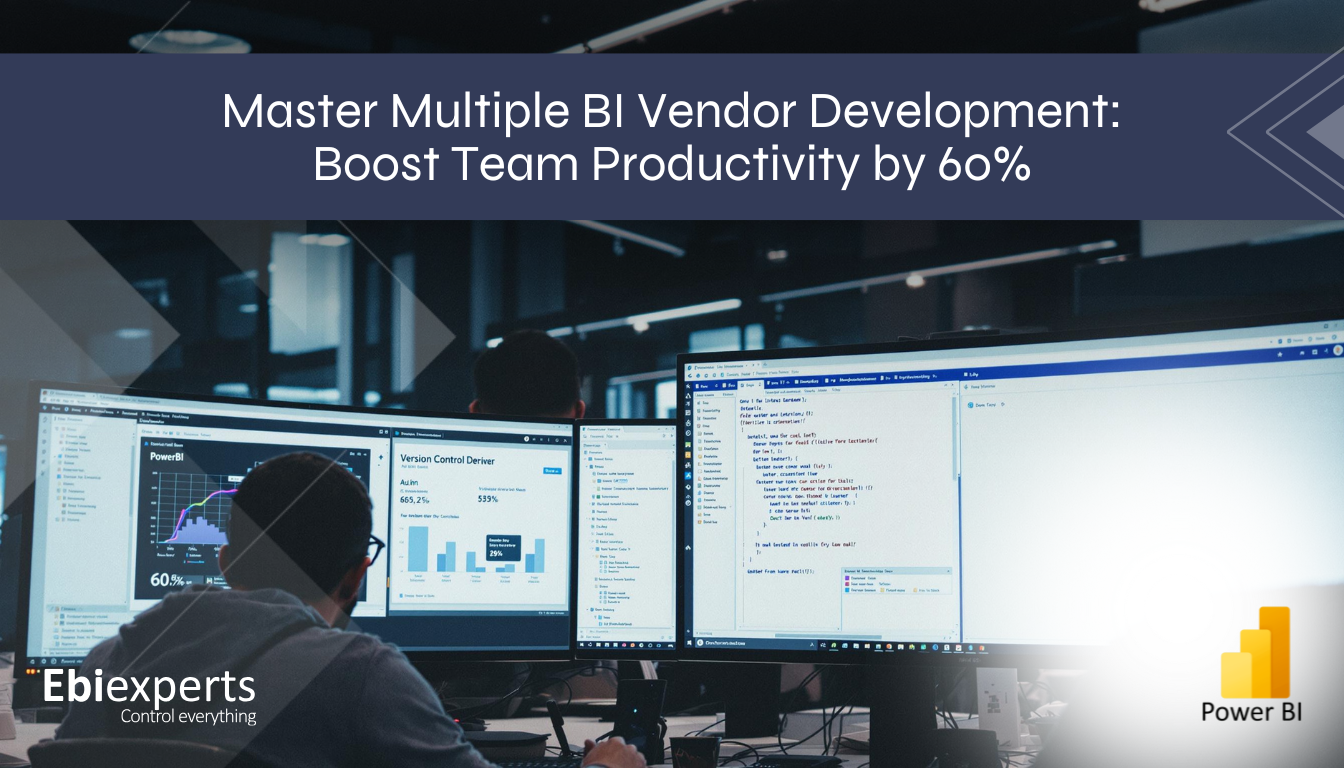Effective version control stands as a cornerstone of successful BI development, enabling teams to collaborate seamlessly while maintaining data integrity and report consistency. This comprehensive guide explores how organizations can master multiple BI Vendor version control to accelerate development cycles and enhance team productivity.
Why Multiple BI Vendor Version Control Matters
Organizations managing multiple BI Vendor assets face significant challenges without proper version control. Teams struggle with conflicting changes, lost work, and deployment errors that can compromise data-driven decision-making. Implementing robust version control solves these challenges while delivering measurable benefits:
- 40% reduction in development cycles
- 60% fewer deployment-related errors
- 75% improvement in issue resolution time
- Enhanced compliance and audit readiness
Core Components of Effective BI Version Control
Centralized Repository Management: Qlik, PowerBI, SAPBO
A secure, centralized repository serves as the foundation for BI version control. This single source of truth enables teams to:
- Store and organize all BI reports and assets
- Control access through role-based permissions
- Track changes and modifications systematically
- Maintain backup and recovery capabilities
Automated Version Tracking
Modern version control systems automatically capture and track changes, providing:
- Detailed modification history
- Side-by-side version comparisons
- Quick rollback capabilities
- Change documentation and audit trails
Environment Management
Structured environment management ensures smooth transitions from development to production:
- Separate development, testing, and production environments
- Controlled deployment workflows
- Environment-specific configurations
- Automated validation checks
Implementing BI Version Control with WIP
WIP offers specialized features designed specifically for BI version control:
Direct Service Integration
- Seamless connection to BI services
- Automated report version management
- Real-time agile planning and collaboration capabilities
Advanced Publishing Controls
- Controlled deployment workflows
- Publication approval processes
- Rollback functionality
- Comprehensive audit logging
Team Collaboration Features
- Integrated Agile board
- Task tracking capabilities
- BI Knowledge sharing platform
- BI Audit analysis
- Wholistic data impact analysis across the total BI stack
Best Practices for BI Version Control
Establish Clear Naming Conventions
Implement standardized naming conventions for:
- Report files
- Data sources
- Variables and connection (global and report level)
- Servers, Environments, workspaces
- Versions and comparisons
Define Workflow Processes
Create structured workflows that include:
- Development guidelines
- Review procedures
- Testing protocols
- Deployment checklists
Implement Security Measures
Ensure robust security through:
- Role-based access control
- Audit logging
- Compliance monitoring
- Data governance policies
Maximizing ROI with Multiple Vendor BI Version Control
Efficiency Gains
Organizations implementing proper version control typically experience:
- Reduced development time
- Faster deployment cycles
- Improved team coordination
- Enhanced quality control
Cost Benefits
Measurable cost savings through:
- Minimized rework
- Reduced downtime
- Lower maintenance costs
- Improved resource utilization
- Instant restore and rollbacks
Advanced Features and Integration
Data Source Management
- Wholistic impact analysis across the BI stack
- Flexible data connection replacement
- Automated source updates
- Environment-specific configurations
- Version-controlled connections
API Integration
- Automated workflows
- Custom integrations
- Scheduled deployments
- System notifications
Future-Proofing Your Multiple Vendor BI Development
Scalability Considerations
- Plan for growth in report volume
- Consider team expansion needs
- Evaluate performance requirements
- Assess storage requirements
Continuous Improvement
- Monitor version control metrics and audit requirements
- Gather team feedback
- Update processes regularly
- Implement new features
Frequently Asked Questions
Q: How does version control improve team collaboration?
A: Version control enables multiple vendor developers to work simultaneously while preventing conflicts and maintaining change history.
Q: What security measures are included?
A: WIP provides role-based access control, audit logging, and compliance monitoring features to ensure data security.
Q: Can we integrate with existing tools?
A: Yes, WIP offers integration capabilities with popular tools like Jira and supports custom API integrations.
Getting Started with BI Version Control
Ready to transform your BI development process? Take these steps:
- Assess your current workflow challenges
- Define version control requirements
- Implement WIP’s Qlik, PowerBI and SAPBO version control
- Train team members on new processes
- Monitor and optimize performance
Book a demo with our experts to see how WIP can streamline your PowerBI development: Schedule Demo


